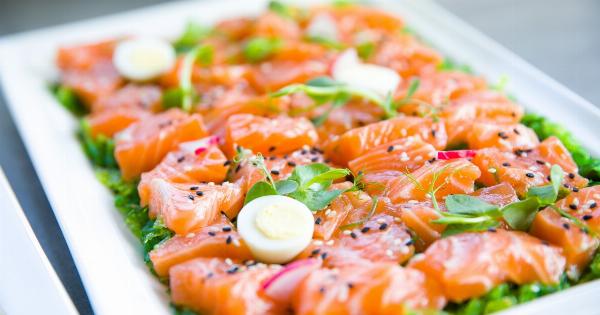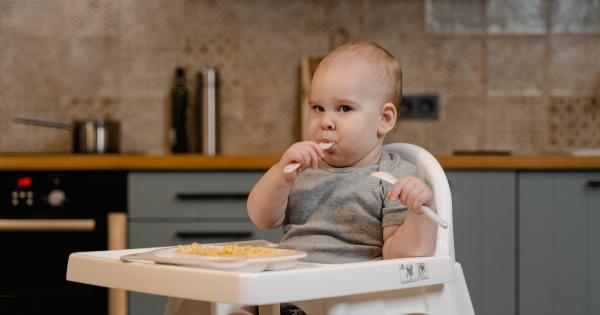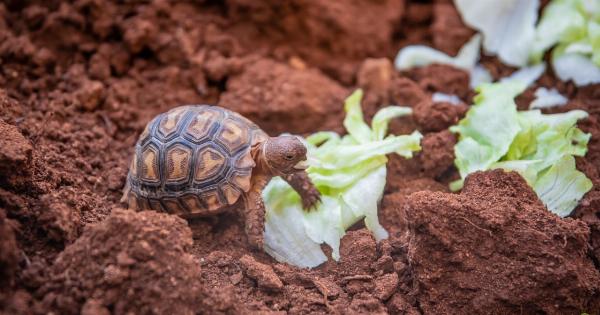As your baby grows, they will eventually need solid foods to meet their nutritional needs. But introducing solid foods to your baby requires careful consideration and preparation.
In this article, we will explore how to start your baby on solid foods safely.
When should you start to introduce solid foods to your baby?
The World Health Organization recommends that babies should be exclusively breastfed or formula-fed for the first six months of their lives. Solid foods can be introduced after six months, but not before that.
This is because a baby’s digestive system is not fully developed before six months, and introducing solid foods too early can lead to allergies and other health problems.
What are the signs that your baby is ready for solid foods?
Here are some of the signs that your baby is ready for solid foods:.
- Your baby can sit up with little or no support.
- Your baby has good head and neck control.
- Your baby is interested in what you are eating.
- Your baby is able to reach for and grab things.
If your baby shows these signs and is at least six months old, it is time to start introducing solid foods.
Which foods should you introduce first?
The first foods you introduce to your baby should be nutrient-rich and easy to digest. Here are some of the best foods for your baby’s first taste of solid food:.
- Rice cereal: This is a good choice because it is easy to digest and fortified with iron, which babies need at this age.
- Avocado: Avocado is a great source of healthy fats and important nutrients like vitamin E.
- Sweet potato: Sweet potatoes are nutrient-dense and easy to digest. They are also low in allergens.
- Banana: Bananas are soft and easy to mash, making them a good first food for babies. They are also high in potassium and vitamins C and B6.
How should you introduce the first solid foods to your baby?
When you first introduce solid foods to your baby, start with small amounts. You can mix a few teaspoons of rice cereal with breast milk or formula to make a smooth consistency.
Give your baby a small spoonful and watch for any signs of discomfort or allergic reaction.
It is important to introduce one new food at a time and wait three to five days before introducing another new food. This will help you identify any foods that your baby may be allergic to or have trouble digesting.
If your baby has an allergic reaction to a particular food, stop giving it and consult a doctor immediately.
What foods should you avoid in your baby’s first year?
There are some foods that you should avoid in your baby’s first year. These include:.
- Honey: Honey can contain spores of a bacterium that can cause botulism in babies under one year old.
- Cow’s milk: Cow’s milk should not be given to babies before one year old. It can cause an allergic reaction or digestibility issues.
- Nuts and seeds: Babies are at risk for choking on nuts and seeds because they can be difficult to chew and swallow.
- Sugar: Avoid giving your baby foods and drinks with added sugar, as this can lead to tooth decay and unhealthy eating habits later in life.
What are some tips for feeding your baby solid foods?
Feeding your baby solid foods can be a messy and stressful experience, but it can also be fun and rewarding. Here are some tips to help make the experience more enjoyable:.
- Start with small amounts and work your way up as your baby gets used to eating solid foods.
- Let your baby explore the food with their hands and mouth. This will help them develop fine motor skills and learn about different textures and flavors.
- Offer a variety of foods to your baby to expose them to different tastes and textures. This will help them develop healthy eating habits later in life.
- Be patient and don’t force your baby to eat. Let them decide when they are full.
Conclusion
Introducing solid foods to your baby is an exciting milestone, but it requires careful consideration and preparation. By following the tips and guidelines in this article, you can start your baby on solid foods safely and confidently.

























